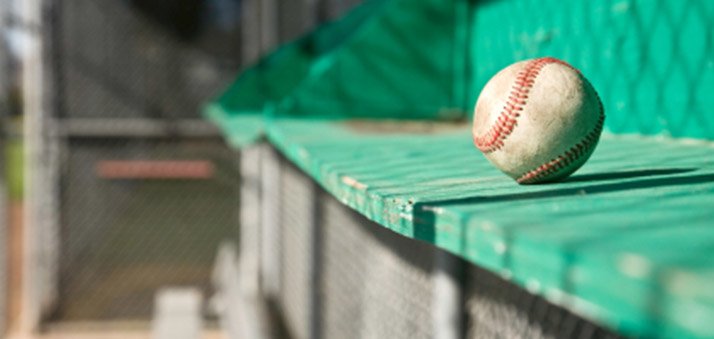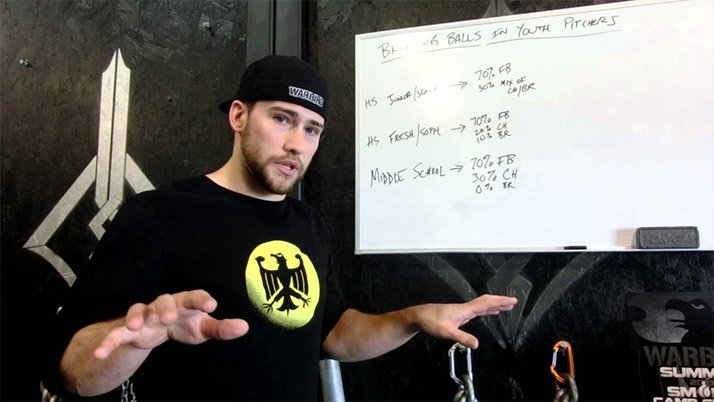
The 6 Things You Need To Become An Elite Athlete
The rules and equipment vary in every sport and competition, but if you have dreams of reaching elite levels in any athletic endeavor, here are the 6 things you absolutely need!
I'm one of the lucky strength coaches working today with an athletic background in professional sports. Starting out as an 8-year-old, I've now made it two decades without hanging up my cleats—and since my chosen sport is baseball, they are literally cleats.
The word "grind" gets thrown around a lot these days, and when I see it, I sometimes cringe knowingly. As a career minor-league baseball pitcher, I've lived the injuries, the long nights, the fatigue, and the heartbreak that comes with making it, but never making it big. I know just how grungy and discouraging the life behind your favorite athlete's Instagram feed can be.
If that athlete inspires you to follow in their footsteps, that's great—but I ask that you go in with your eyes wide open. No matter what kind of athlete you want to become—baller, powerlifter, triathlete, or any point in between—the path is the same. If you dream of being elite, here's what you need in order to grind to the top.
The knowledge that boredom = mastery
As a coach, I have little patience for clients who want "muscle confusion" every month. The CrossFit approach of being good at everything but great at nothing works for plenty of people who are looking for a great combination of fun and fitness, but it won't land you a pro contract.
What you need is mastery. I throw a baseball over 10,000 times per year, and have been doing so for 20 years of my life. If you think it's still enthralling, you're dead wrong. Winning games in front of fans is exciting. Throwing the same fastball that I've thrown 100,000 times in my life is, well, dull. But I throw each one with hopes that it's better than the last, in hopes that my body is more precise and efficient than it was yesterday. This is mastery, and mastery is something that takes years of boring, repeated practice to achieve.

In every discipline, the world's best thrive on boredom. Think about Olympic lifters: They perform the same few lifts an unbelievable amount of times. Little variation, only mastery.
If you don't have the attention span to do the same thing you did yesterday, or you do it .001 percent better and feel OK with that, pro sports may not be for you.
A tested routine
Pro athletes are creatures of routine, and for good reason. It takes years to figure out exactly what offseason, in-season, pre-game and post-game routine produces the best results. Successful athletes are like scientists; they add, subtract and test new methods one by one to see if they increase performance.
It's crucial to put oneself in a position to "peak" before each and every competition or game. Tapering physical training, rest, nutrition, and mental training all have their place and need to be in ideal balance to produce ideal results. Once athletes find out what works, they stand by it with tenacity and are deliberate in altering routines.
Can you keep a routine and stick by it through fatigue, injuries, and bad performances? If not, pro sports may not be for you.
Years of continual hardening
I have some older teammates who were in pro ball when I was 10 years old. To maintain a high level of performance over the years, consistent training is crucial.
Strengthen key body parts consistently and slowly over time. This is the only way to keep the body from deteriorating over long seasons, especially as you age. For most athletes, the hamstrings, glutes, back, and forearms should be the hardest, most bulletproof parts of the body.
As a strength coach, I want young athletes to work hard, but not so hard that it becomes a job. Enjoying training is crucial to being able to maintain it for what is hopefully a long career. So no, it's not about working to exhaustion every single day in the gym. Work hard, but don't exhaust yourself to the point that you can't keep showing up day in and day out. This will allow a greater body of work to endure over time.
Can you train day in, day out, for 10 years or more, working on mastery and incrementally hardening your body? If not, pro sports may not be for you.
Truly intrinsic passion
It's not for fame. It's not for your parents. It's not for the girls, your wife, God, or anyone else. It's for you. Athletes who compete for themselves above all do vastly better than those who are pushed by external sources. Sure, having a supportive family and great friends helps all of us make it through the hard times. But, in the end, it has to be because you want it. You suffer through the low points because you believe in yourself above all others.
Pursue your sport and your goals because you love doing it. If you're playing for any other reason, pro sports may not be for you.
Thick skin
Ever watch ESPN? How often do you hear analysts bashing players? Every day, right?
The internet is even worse, because it gives fans an anonymous voice. Can you handle 100,000 people tweeting about how awful you are at something you love so much?
And, of course, it's not just the media and the keyboard quarterbacks. It's ruthless coaches and peers. To play decades in a sport, you're going to have to endure a lot of criticism. The low point in my career is an illustration of just how cruel sports can be.

In my second season, I was traded to a new team, and my first few outings weren't good. I got yanked out of the starting rotation and put in the bullpen, where I promptly pitched the ninth and 10th innings of a tie game as a reliever. And what happened? I lost the game for us in the 10th—our sixth straight loss—all in front of 5,000 fans who roared their disapproval as I walked off the field.
Back in the clubhouse, we all sat in silence at our lockers. The silence was broken by our manager yelling at the pitching coach, his voice booming through the closed coaches' office door: "You said to leave him in! But you know what? He stinks! He flat-out stinks!"
It was me they were talking about, and I feel a little sick every time I replay that scene in my head. If you can't handle being the goat more often than the hero...pro sports may not be for you.
High pain tolerance
Mental suffering on your road to elite will be plentiful, as illustrated above. But, beyond that, the ability to keep training and playing when you're less than 100 percent is crucial. I once popped 12 Advil a day for an entire season to keep myself on the field; my arm shook as I drank water between innings. I was mentally and physically exhausted by the end of it. But to keep my job, I had to perform, so I did what I had to do.
A coach once told me that my career would be broken into three types of games:
- 25 percent of the time, you'll feel great and be at your best. You'll win on these days without much effort.
- 25 percent of the time, you'll feel terrible, and you'll lose no matter what you try.
- 50 percent of the time, you'll feel just OK. Mentally or physically, something will be bothering you. If you can dig deep and win these games, you'll be a good player. If not, you won't play very long.
The reality is that the players you see on TV are hurting a good amount of the time. It's rare for an athlete to take the field after decades of battle and be head-to-toe healthy. Many of their amazing feats are displayed when they're suffering to a degree that you'd probably consider worthy of a trip to the doctor.
If you can't find a way to be great when your body hurts, pro sports may not be for you.
Sports Will Fight Back the Entire Way
Despite what I've written here, having a long career in competitive athletics is still an amazingly rewarding experience. But pursuing it requires an utterly farsighted outlook, as days, weeks, and months can be grueling when your body hurts, it's 98 degrees outside, and you're in a deep slump that you can't shake.

Consistency and belief in self are the two most crucial aspects of surviving. Most talented athletes don't make it big because they can't handle the failing, or physically overcome their injuries, or both. It's remarkable to make it to the top in one piece mentally, let alone mentally and physically.
Grinding means staying the course and staying consistent no matter how hard it gets. Keep training, keep your routine, keep focused, and don't let a few bad stretches undo years of hard work.
